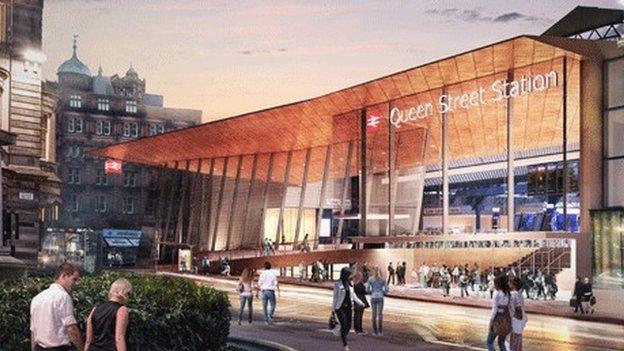Glasgow station's £100m upgrade gets green light
- Published
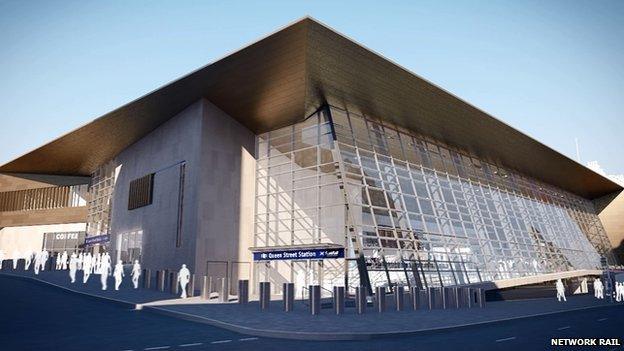
Network Rail issued images of plans for the Queen Street Station revamp
A major redevelopment of Glasgow's Queen Street Station has been given formal approval.
The work will include provision for longer trains and capacity for the station to handle increased passenger numbers.
Scottish ministers have signed a Transport and Works Scotland (Taws) order to allow the "major facelift" to go ahead.
Work at the station will cost more than £100m and should be completed by 2019.
Transport Minister Humza Yousaf said: "The Scottish government is delivering the most ambitious programme of rail investment ever seen in Scotland, committing over £5bn across the current funding period.
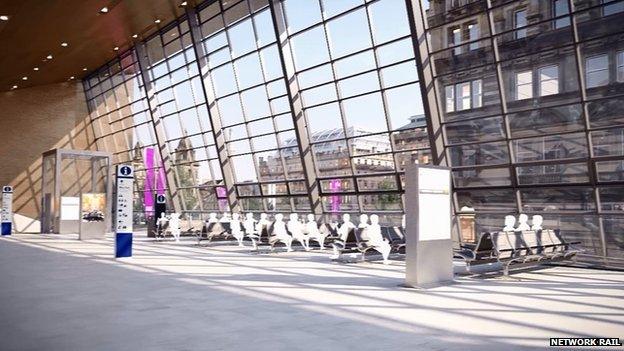
The glass front of the station will have views towards George Square
"Approval of this Taws Order allows Network Rail to undertake significant enhancements to Glasgow Queen Street Station.
"This continued investment in our key rail hubs will not only accommodate longer trains and the future growth in passenger numbers, it will also improve the overall service experience."
He added: "Coupled with new longer, faster, greener Class 385 trains coming later this year and a full fleet refurbishment, we are doing what we can now to deliver a Scottish rail industry for the future, one which encourages even more people opt to get out their cars and onto trains."
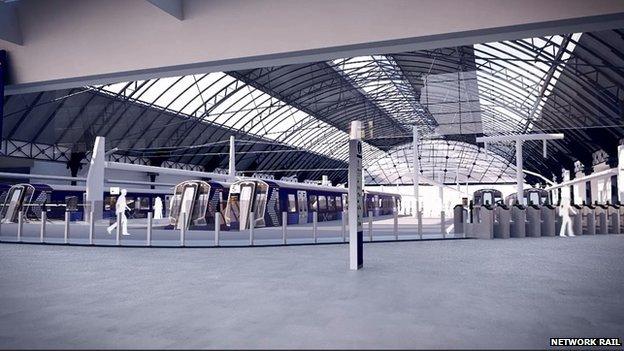
The inside of the revamped station will have an expanded concourse
Queen Street handles 20 million passengers a year.
Network Rail said the revamp was needed to meet predicted growth to 28 million passengers by 2030.
There will be a number of major new developments at the station and surrounding areas, including an extension of the east side of the building into the Buchanan Galleries shopping centre.
The current entrance will also be replaced with a 500 sq m glass facade.
The project is part of the Scottish government's £650m Edinburgh Glasgow Improvement Programme (EGIP), which aims to reduce journey times and increase capacity on Scotland's main rail routes.
- Published1 October 2014
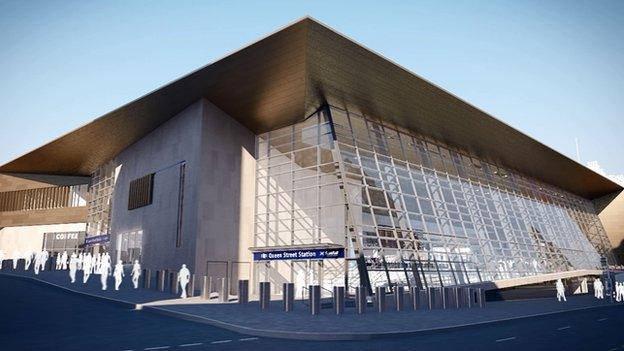
- Published25 February 2014
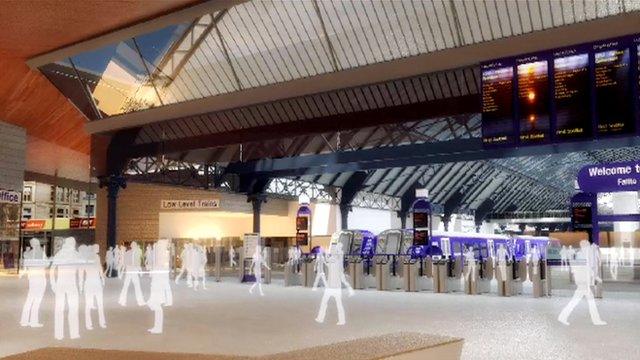
- Published25 February 2014
